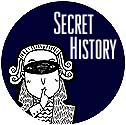 |  |

Some modest proposals for Olde West Knoxington
by Jack Neely
It was the name of one street in particular that got me wondering. It sprouts off Westland Drive, through what I remember to be an old farm. Suddenly, a few years ago, the farm was gone and there was a clean new street called "Lawford" sloping down into a clean new subdivision.
I wondered then, and wonder still, where the name Lawford came from.
I've been through phone books, city directories, biographical files, genealogical indexes, and I haven't been able to find any evidence that anyone named Lawford has ever lived in Knoxville. On a hunch, I looked around and discovered that in various parts of town there's also a Bishop, a Martin, and a Davis street. Even though there's no Sinatra Street, I figured maybe there's a Rat Pack motif going on here.
It seems more likely, though, that we picked Lawford for the same reason that we pick names of most West Knoxville streets: because it sounds English and vaguely glamorous. Take Carrington, Barrington, Darrington, Farrington, and Harrington Drives, all in residential areas in West Knoxville. Driving around out there among the Queensburys and Kingsmeades, you get the impression that West Knoxvillians feel some remorse about what happened in 1776. (It's funny, though—when the actual English choose names for city streets, they favor distinctively local, historical names, many of them too earthy for a West Knox signpost: Birdcage, Cowcross, Ropemaker, Cheapside, Wigmore, Cornhill, Houndsditch.)
The other day I did notice one rare departure from West Knoxville's anglophiliac signage—a cul-de-sac called Rush Limbaugh Lane. I don't mean to be presumptuous, but I get the feeling maybe somebody out there needs some ideas. So, as a public service, I thought it timely to offer a list of noble, distinctive, and authentically local Knoxville names that aren't currently in service.
Unfortunately, many of Knoxville's most memorable families had names that might give a nervous real-estate developer pause: Houk, Coffin, Krutch, Savage. The Savages were English—just as English, in fact, as the late Peter Lawford—brothers who moved here just after the Civil War and became brilliant inventors of mining and earth-moving equipment. Actually, the Krutches and the Savages both have parks, but not streets, named for them—but in both cases, they had to make an endowment with the name attached to it.
If you do insist on something veddy English for your upwardly mobile West Knox clientele—something that's also Knoxvillian—try Frances Hodgson Burnett's maiden name. The Hodgsons moved here in 1865; the author's brother, Bert Hodgson, was a prominent dance-band leader in the 1870s and '80s.
Mayors in general are pretty well-represented on signposts. But Martin Condon, Knoxville's first Irish-Catholic mayor, has nothing named for him. George Roulstone, who brought journalism to Tennessee, has nothing named for him. Gustavus Knabe, who brought us classical music; Frederick Esperandieu, who made the first wine here; Lowell Blanchard, maestro of country music.
The Wiley sisters, Knoxville's best-known impressionist-era painters, have nothing named for them. Judging by the reception his recent biography got, artist Beauford Delaney is one of the best-known born-and-raised Knoxvillians of all time—but doesn't have anything named for him, either.
James Agee has no streets named for him. None of Knoxville's best-known authors, in fact, have any streets bearing their last names: Agee, McCarthy, Madden, Marius, Giovanni, Ochs.
Ambrose Burnside, the Union commander whose finest hour may have been his defense of Knoxville from Longstreet's assault, is remembered on a couple of different avenues, Burnside Place and Burnside Street—but Longstreet isn't at all. Interestingly, William Sanders, the ill-fated Union general whose name is all over a hospital chain, doesn't have so much as an alley named for him. Nor does Orlando Poe, the brilliant engineer whose fortifications made Knoxville impregnable.
A few Vol heroes have last names that are well-remembered on street signs here—Peyton Manning and George Cafego come to mind, not to mention Robert Neyland—but many others don't. Hank Lauricella. Nathan Dougherty. Bowden Wyatt. Andy Kozar. Willie Gault. You could come up with about 100 more that you can't read without hearing John Ward pronouncing them in his distinctively crisp awe. I'm amazed no one's created an all-Vol subdivision yet—though I'm not sure I'd care to live in it.
On the other hand, most of the 41 Cherokee chiefs who signed the Treaty of the Holston have names so colorful I'd pay extra to live on a street named for one of them. Oddly enough, the only one we've memorialized in a street name is the one who tried his best to obliterate Knoxville: Doublehead, of Doublehead Lane. Others not used are just as vivid: Bloody Fellow. Hanging Maw. Bear at Home. Long Will. Middle Striker. The Breath. Northward. The Upsetter. Stopt Still.
And you don't have to use proper names of people, of course; you can also refer to institutions. Take the legendary moonshine route, Thunder Road. There's a cheeseburger at the Diner, a ride at Dollywood, and a beer at Calhoun's named for Thunder Road. But so far, there's no actual road named for Thunder Road.
So, if you're a developer, help yourself. All I ask is that they be good streets. If you have any questions about the street, the quality of the houses to be built there, or the people who will live in them, maybe something like Larrington or Zarrington would be just perfect.

|